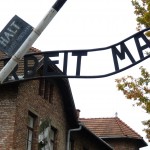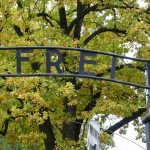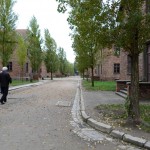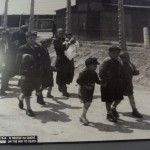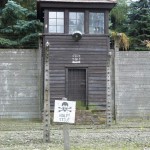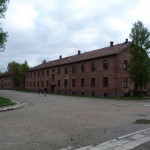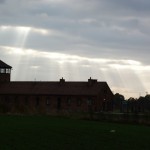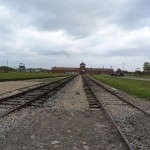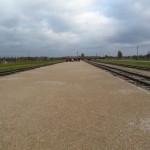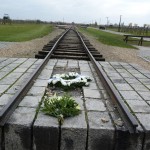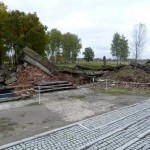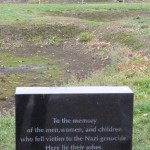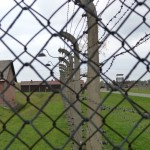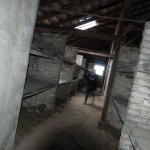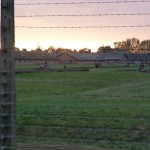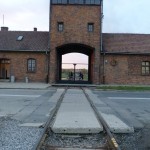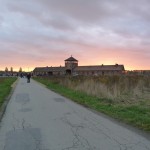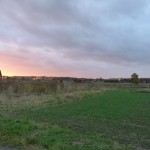This weekend we travelled to Poland and visited Auschwitz and Birkenau.
I called this post unequal to the task because there’s nothing I can say about the place and what happened there that would come anywhere near doing it justice. But the camp was – horrifically – equal to its hellish task. Astonishingly so.
1.3 million people died on this small patch of rural Poland in the space of a few years. All murdered, systematically and efficiently. Mechanically. There must have been meetings to plan it all, agendas typed up, orders communicated, equipment and labour organised. Hundreds of people involved in the mundane minutia for massacre. But you know all that.
On display alongside the tangle of spectacles and pyramids of suitcases is a bolt of dull brown fabric, woven from human hair. Apparently it was sold to German car manufacturers at the time cheaper than horsehair. I can’t shake off the awfulness of this – perhaps it’s the thought that the hair – once a source of pride, brushed and shampooed, became a commodity, its owners long-shorn and lifeless.
Now groups of sombre visitors listen to the stories and gaze at information boards as they shuffle by in silence. It would be a puzzling sight, if you didn’t have the burden of the knowledge. That and the neat red-brick rows, with the upper windows in-line with leafy tree tops. It’s every bit as smart as the Polish army barracks it once was.
Almost as shocking as the sad statistics of the atrocities are the flashes of colour. Some of the shoes in the grim piles are red-strapped children’s sandals and showy greens and blues of fashionable heels. There are bright enameled pots and pans, lugged thousands of miles to a future their owners believed existed. Painted pottery and plates, defiantly unfaded.
At Birkenau, it’s big – vast, even. Yet, prisoners were still crammed in, denied the human luxury of personal space. Arriving on overcrowded trains, sleeping six-to-a-bunk, never having anything for yourself. Would that have been worse than the pain and hunger? I’m thankful that I’m unlikely to have to learn the answer.
There can be no pretending this was anything other than a place to die or to wish for death. In the raw wind over the train tracks, I tried to capture a sense of the enormity of what happened, of the souls departed. Would the very earth resonate with outrage and misery?
But then a flock of birds shaped and reshaped over the bones of the barrack houses, wheeling as the autumn sun glowed the last light of the day.
Who am I to make pronouncements about the nature of evil or pledges for a better future? Unequal to that task, the only thing, perhaps, is some gratitude. I have all the things I need and the safety and comfort to enjoy them in.
